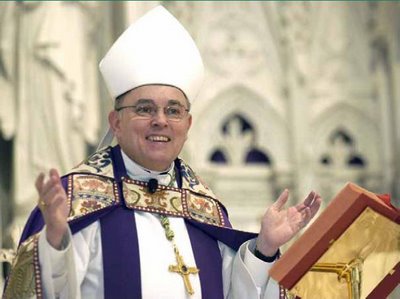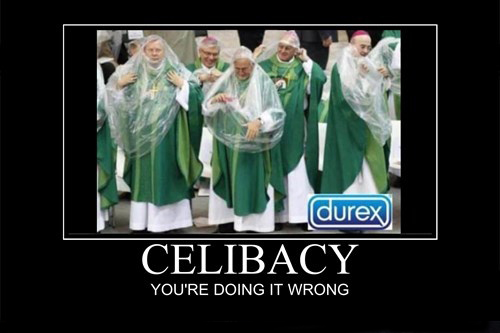By Steve Hardy
Tim Ardillo said he was standing next to his mother’s coffin leading his young son to receive a blessing when the priest presiding over the funeral Mass denied him communion.
The longtime Catholic said the priest told him it was because he married outside the church, but Ardillo doesn’t think that’s the whole story.
He believes he was denied the sacrament because, as is stated in his mother’s obituary, he is married to a man.
The priest in question, the Rev. Mark Beard, of St. Helena Catholic Church in Amite, did not return multiple calls seeking comment in the week following the July 10 funeral.
Ardillo said the church passed out a quotation from 1 Corinthians at Mass the next Sunday, which states, in a portion highlighted in red ink, “Whoever eats the bread or drinks the cup of the Lord in an unworthy manner will be guilty of sinning against the body and blood of the Lord. A man ought to examine himself before he eats of the bread and drinks of the cup. For anyone who eats and drinks without recognizing the body of the Lord eats and drinks in judgment of himself.”
Ardillo said he has since received an apology from the Diocese of Baton Rouge, which directly oversees the Amite church, and a personal apology from New Orleans Archbishop Gregory Aymond, though Aymond’s office declined to comment on the matter for this story.
The standing of gays and lesbians within the Catholic Church is complicated, with the church opposing same-sex marriage but counseling respect for LGBT people.
According to the National Conference of Catholic Bishops, “homosexual inclination” is not a sin itself, but “homosexual acts” are immoral and “always objectively sinful.” The conference also says people with a homosexual inclination should not be encouraged to speak openly about the matter and may be denied roles in the church.
However, the bishops also say, “Church policies should explicitly reject unjust discrimination and harassment of any persons, including those with a homosexual inclination.”
As for communion, Catholics should not receive communion if they have committed a “grave sin” to which they have not confessed and performed an act of contrition, according to the conference.
When asked about Ardillo’s case, the Diocese of Baton Rouge emphasized that the responsibility to comport with church teachings is on the person receiving the communion.
“With respect to the specific matter raised, the Catholic Church expects that any individual Catholic who is in a marital situation which is not in conformity with its doctrines will not come forward to receive the body and blood of the Lord at Mass. For Catholics, reception of Holy Communion among other things is an expression of unity with the church’s teachings, including those about marriage,” the diocese wrote in a statement.
Diocese spokeswoman Donna Carville, a Eucharistic minister, said the diocese does not condone denial of communion to Catholics just because they are gay.
“That’s very surprising that he was denied communion. That just doesn’t happen. … We don’t deny people communion,” she said. “Who are we to judge whether they believe (the church’s teachings on the communion) or not? It’s between you and God.”
Being married outside the church should not be used to deny someone the Eucharist, said the Rev. Roger Keeler, executive coordinator of the Canon Law Society of America.
As a practical matter, Keeler noted that a priest or Eucharistic minister can’t possibly know the marital standing of everybody in line. He also raised more philosophical concerns.
“This is not a weapon. Communion is not a reward for good behavior,” he said. “It’s the food for weary souls.”
He used an example of a priest who has read in the newspaper that a parishioner has embezzled millions of dollars. The woman may have atoned for her transgression, and even she should receive the sacrament if she puts out her hand, Keeler said.
“How am I to know that she is not in a state of grace?” he asked.
A priest would find a few reasons to withhold a communion, Keeler said. It may be appropriate if the person is known to be of a different faith or has been excommunicated or formally left the church, he said.
He and the Baton Rouge Diocese agreed that, ideally, those issues should be resolved in private, rather than the communion line.
Ardillo said he would have stayed out of line if the matter had been broached before his mother’s funeral Mass.
He expected that receiving communion would be an “intimate, intimate experience” because his mother is with the Holy Spirit, and he could connect with her through participation in the Eucharist.
After the incident, he grabbed his husband’s hand and stormed out of the church, but a relative who is a lesbian coaxed him back in, saying the family needed him to be a leader. Ardillo said he was also concerned about the message the denial would send to a younger gay family member who was at the Mass.
Ardillo himself has drifted away from the church. Though he now lives in Indiana, he said that as a boy he was an altar server at the very church where the funeral was held, and priests would frequently come over to his house for Christmas Eve supper.
He said he still believes in the Catholic faith but isn’t sure of his “place” in the church.
Toward the end of his mother’s life, the two would pray together; she signed the cross on her leg when she couldn’t lift her hands higher. They prayed the rosary together the last time they saw each other, Ardillo said.
He had thought the funeral would serve as a reintroduction into the Catholic community, but not anymore.
“I can’t,” he said. “I don’t have it in me.”
Complete Article HERE!




